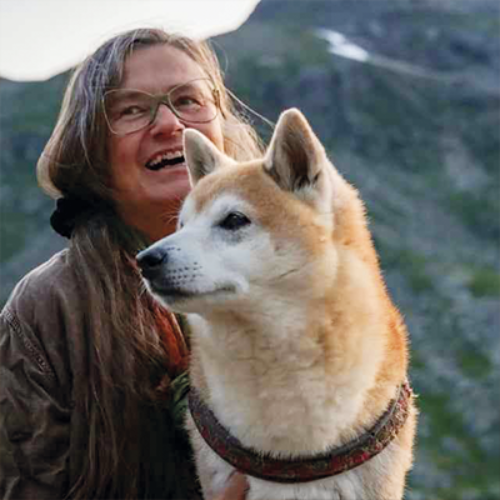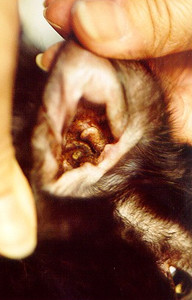
Behavioral modification and medical treatment are key to treating anxiety in dogs. Consult your veterinarian if you notice your pet is experiencing these symptoms. Anxiety is a serious medical condition, and you want to be sure that it is not caused by a more serious underlying health problem. A veterinarian can help you determine the cause. In certain cases, a veterinarian may be able to diagnose other conditions. A vet may recommend special medication for your dog if you notice any of these symptoms.
An effective treatment for anxiety in dogs can be medication. The severity and duration to which the symptoms are severe will dictate the treatment. The treatment usually lasts four to six month in most cases. Prescription medications are not appropriate for all pets, and are generally implemented as a last resort when nothing else has worked. In some cases, hospitalization is the best choice. While medication is not recommended for all dogs and cats, it can be beneficial for those who are truly anxious.

An aging dog might be experiencing anxiety due to a trigger. In such cases, it is important to identify the trigger and expose your dog to it frequently. If your dog seems afraid of leaving the house, go outside and hold your keys for a couple minutes. Repeat this process several times each day. You can gradually increase the duration and frequency of exposure to help your dog develop a fear-response habit.
Dogs may become hypersensitive to certain situations, and they need to be comforted. These symptoms may indicate that your dog is in need of help. Anxiety is not something that will disappear by itself in dogs. Although it will get worse over time, there are ways to treat anxiety. So what are your options for anxiety treatment? There are many options for dogs suffering from anxiety. First, you need to identify the exact cause of your dog's anxiety.
Your veterinarian is the best person to help you if your dog suffers from anxiety. The vet can determine the exact type of anxiety and possible causes. If your anxiety is mild and manageable, your veterinarian can recommend a treatment program. For dogs suffering from anxiety excessively, you should see a vet immediately to prevent further problems. It is important that you treat your dog immediately. If you have an ongoing case of high-level anxiety, it is important to consider medication.

You should consider medication if your dog is suffering from anxiety. This medication can be helpful in helping your dog deal with anxiety. Some medications come in tablet, capsule or liquid form. In addition to medications, you can try behavioral therapies for your dog. These techniques can help relieve anxiety in dogs. Dog anxiety medication is not an instant fix. It will take time to get your dog under control. You should work with your dog for a longer time in order to help it overcome anxiety.
FAQ
How often should I groom my dog?
Grooming your dog will make him happy. It helps maintain his coat and keeps him clean.
You should brush your dog at least twice per week. Brush your dog after every meal.
Brushing your dog’s fur will get rid dirt and hair. Brushing his teeth will help him look healthier.
Ear infections can be prevented by brushing his ears.
Should I spay/neuter/neuter my dog or not?
Yes! It is vital to spay/neuter your dog.
It does not only decrease the number unwanted puppies, but also reduces the likelihood of certain diseases.
For example, breast cancer rates in female dogs are higher than in males.
There is also a greater chance of testicular carcinoma in males than in females.
It is also a good idea to spay or neuter your pet so she doesn't have babies.
What food should I give my dog?
It is important to give your dog a healthy diet.
Some foods that are high in protein include chicken, beef, fish, eggs, and dairy products.
Other foods high in carbohydrates include vegetables, fruits, breads, cereals pasta, rice, potatoes and beans.
Foods low in fat include lean meats such as poultry, fish, eggs, nuts, seeds and whole grains.
Before you give your dog different foods, make sure to consult your veterinarian.
What should I do before buying an exotic animal?
You need to be careful before you decide to buy an exotic pet. It is important to decide if the animal will be kept as a pet, or if it will be sold for profit. If you plan to keep it as a pet, make sure you have enough room. It is also important to estimate how much time it will take to care for the animal. You will need to take time to look after an animal. But, they are worth it.
If you plan to sell the animal, then you need to find someone who wants to buy it from you. You should ensure that the person who buys your animal is knowledgeable about how to care for animals. Make sure you don't feed your pet too much. This could lead to health problems down the line.
If you choose to get an exotic pet, then you need to make sure that you research all aspects of them. Many websites can provide information on various species of pets. You should be careful not to fall for any scams.
What should you think about when purchasing a pet for your family?
First, think about what type of lifestyle you desire for yourself and your family. Do you have children? What number do you have? How old are they now? Are there any dietary restrictions?
Do you have allergies? Is there anything you need to know more about your pet
Now, you can think about whether you are looking to find an active companion, quiet lap dog or house-trained cat. Or perhaps a fish tank filled with tropical fish.
If you're considering adopting a puppy, make sure you visit a shelter or rescue group where you can meet the animals and see if you feel comfortable with them.
You'll also want to know if the animal has been vaccinated against rabies and other diseases.
Ask the owner if they will care for the pet while you are away. This way, you won't have to worry about leaving your pet at home alone.
You should remember that pets are a part of your family and that you should not adopt them unless you truly love them!
Statistics
- Pet insurance helps pay for your pet's medical care, with many policies covering up to 90 percent of your vet bills. (money.com)
- For example, if your policy has a 90% reimbursement rate and you've already met your deductible, your insurer would pay you 90% of the amount you paid the vet, as long as you're still below the coverage limits of your policy. (usnews.com)
- It is estimated that the average cost per year of owning a cat or dog is about $1,000. (sspca.org)
- Monthly costs are for a one-year-old female mixed-breed dog and an under one-year-old male domestic shorthair cat, respectively, in excellent health residing in Texas, with a $500 annual deductible, $5,000 annual benefit limit, and 90% reimbursement rate. (usnews.com)
- A 5% affiliation discount may apply to individuals who belong to select military, law enforcement, and service animal training organizations that have a relationship with Nationwide. (usnews.com)
External Links
How To
The best method to teach your dog where he should urinate is through the use of a map.
Teaching your pet how to use the toilet correctly is essential. It's important to learn how to train them to use the toilet properly if your dog starts to venture outside. Here are some tips that will help you teach your dog the correct way to go to the bathroom.
-
Training should be started early. Start training now if you don't want to have any accidents in playtime.
-
Use food rewards. Your pet will be more successful if you give them a reward after each successful trip.
-
Keep treats out of the areas where your pooch pees. This could make your pet associate urine smells with his favorite treats.
-
Make sure there isn't another animal around before letting your dog out. Dogs may be influenced by the behavior of others who relieve themselves.
-
Be patient. Your puppy may take longer to grasp the concepts than a mature adult.
-
Let your dog sniff everything before allowing her to step into the bathroom. She'll learn faster if she gets a chance to familiarize herself with the scent of the toilet first.
-
Do not allow your dog to go near the bathroom while you take care of business. This could cause confusion.
-
Once you're finished, wipe down the toilet bowl and the floor. These areas will serve to remind you of what to do the next time.
-
Clean up any messes immediately. Clean up after your dog has an accident. You might have to give him another chance at relieving himself.